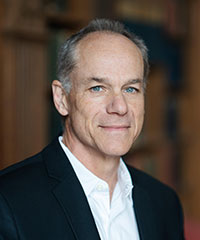
From the Nature of Knowledge to the Knowledge of Nature: Reflections on the Practice and Teaching of Science in the Classroom and the Public Sphere
In this talk, I will first describe recent work on the epistemic foundations of science, in particular, exploring the limits of scientific knowledge and modeling, as argued in my book The Island of Knowledge. As illustrative examples, I will discuss the challenges posed by questions of origins (cosmos, life, and mind) and how they interface with philosophy and the tension between science and religion. I will then transition to the teaching of STEM disciplines both in the classroom and in the public sphere, presenting strategies for a positive engaging of wide-ranging audiences. I hope to make clear how an effective teaching of science benefits from a more humanistic approach, connecting our quest for meaning with ethical questions of the uses and abuses of technology. Such cross-disciplinary approach is key to the formation of citizens endowed with the ability to think critically about the central issues of their time.
About Marcelo Gleiser
Marcelo Gleiser is the Appleton Professor of Natural Philosophy and a professor of physics and astronomy at Dartmouth College. He obtained his Ph.D. from King’s College London and received the 1994 Presidential Faculty Fellows Award from the White House. He is a Fellow of the American Physical Society. He is the 2019 Templeton Prize Laureate, an honor he shares with Mother Teresa, Archbishop Desmond Tutu, the Dalai Lama, and scientists Freeman Dyson and Martin Rees.
His books have been published in 15 languages and include The Island of Knowledge: The Limits of Science and The Search for Meaning, A Tear at the Edge of Creation, and The Simple Beauty of the Unexpected. A world-renowned theoretical physicist interested in cosmology and astrobiology, he has published hundreds of peer-reviewed articles, and more than a thousand essays and op-eds, and frequently participates in TV documentaries and radio shows in the U.S. and abroad. He is the co-founder of the NPR blog on science and culture, 13.7. He currently directs the Institute for Cross-Disciplinary Engagement at Dartmouth College and writes weekly for Orbiter Magazine.

